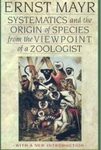![A Natural History of Human Morality A Natural History of Human Morality]()
Click to have a closer look
About this book
Contents
Biography
Related titles
About this book
A Natural History of Human Morality offers the most detailed account to date of the evolution of human moral psychology. Based on extensive experimental data comparing great apes and human children, Michael Tomasello reconstructs how early humans gradually became an ultra-cooperative and, eventually, a moral species.
There were two key evolutionary steps, each founded on a new way that individuals could act together as a plural agent "we". The first step occurred as ecological challenges forced early humans to forage together collaboratively or die. To coordinate these collaborative activities, humans evolved cognitive skills of joint intentionality, ensuring that both partners knew together the normative standards governing each role. To reduce risk, individuals could make an explicit joint commitment that "we" forage together and share the spoils together as equally deserving partners, based on shared senses of trust, respect, and responsibility. The second step occurred as human populations grew and the division of labor became more complex. Distinct cultural groups emerged that demanded from members loyalty, conformity, and cultural identity. In becoming members of a new cultural "we", modern humans evolved cognitive skills of collective intentionality, resulting in culturally created and objectified norms of right and wrong that everyone in the group saw as legitimate morals for anyone who would be one of "us".
As a result of this two-stage process, contemporary humans possess both a second-personal morality for face-to-face engagement with individuals and a group-minded "objective" morality that obliges them to the moral community as a whole.
Contents
Preface
1. The Interdependence Hypothesis
2. Evolution of Cooperation
Foundations of Cooperation
Great Ape Cooperation
Kin- and Friend-Based Prosociality
3. Second-Personal Morality
Collaboration and Helping
Joint Intentionality
Second-Personal Agency
Joint Commitment
The Original “Ought”
4. “Objective” Morality
Culture and Loyalty
Collective Intentionality
Cultural Agency
Moral Self-Governance
The Original Right and Wrong
Coda: After the Garden of Eden
5. Human Morality as Cooperation-Plus
Theories of the Evolution of Morality
Shared Intentionality and Morality
The Role of Ontogeny
Conclusion
Notes
References
Index
Customer Reviews
Biography
Michael Tomasello is Co-Director of the Max Planck Institute for Evolutionary Anthropology in Leipzig, Germany.
Out of Print
By: Michael Tomasello(Author)
180 pages, 6 b/w illustrations
"This is an extremely worthwhile addition to the literature on the evolution of morality. It is well written and strikes an excellent balance between easy accessibility and nuanced and novel ideas. This book will appeal to students and researchers from a range of disciplines."
– Richard Joyce, author of The Evolution of Morality
"This is an important synthesis of the ideas Tomasello has been developing over a number of years, extended with an offer of a philosophically relevant genealogy of morality. Readers will learn much from this informed review of the extensive literature on the evolution of morality – a substantial part of which consists of the major contributions Tomasello and his colleagues have made."
– Philip Kitcher, author of The Ethical Project



































